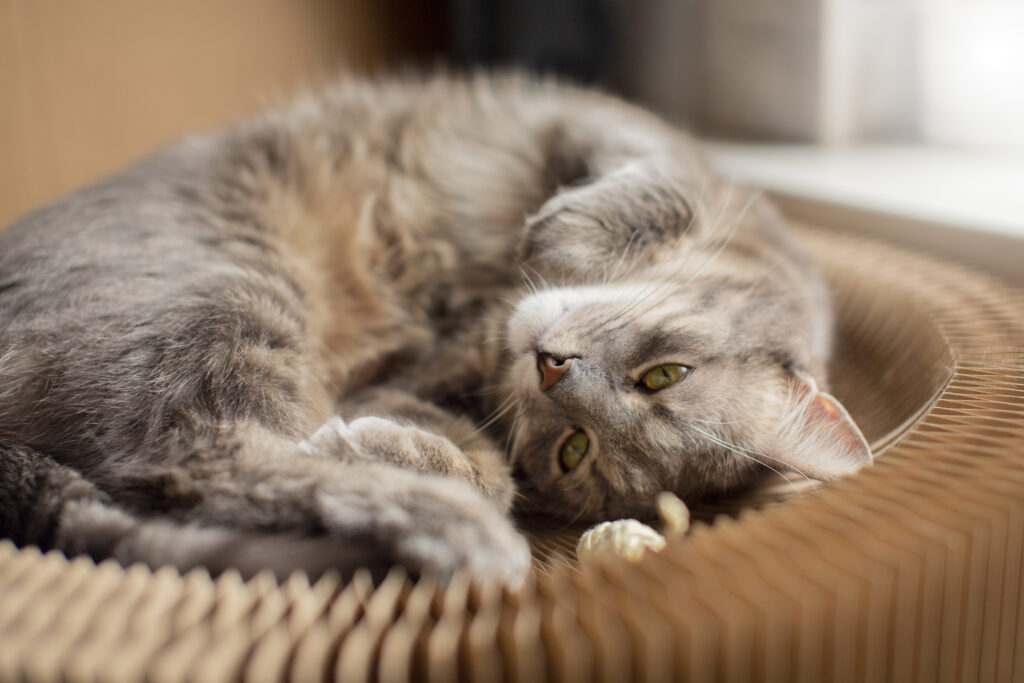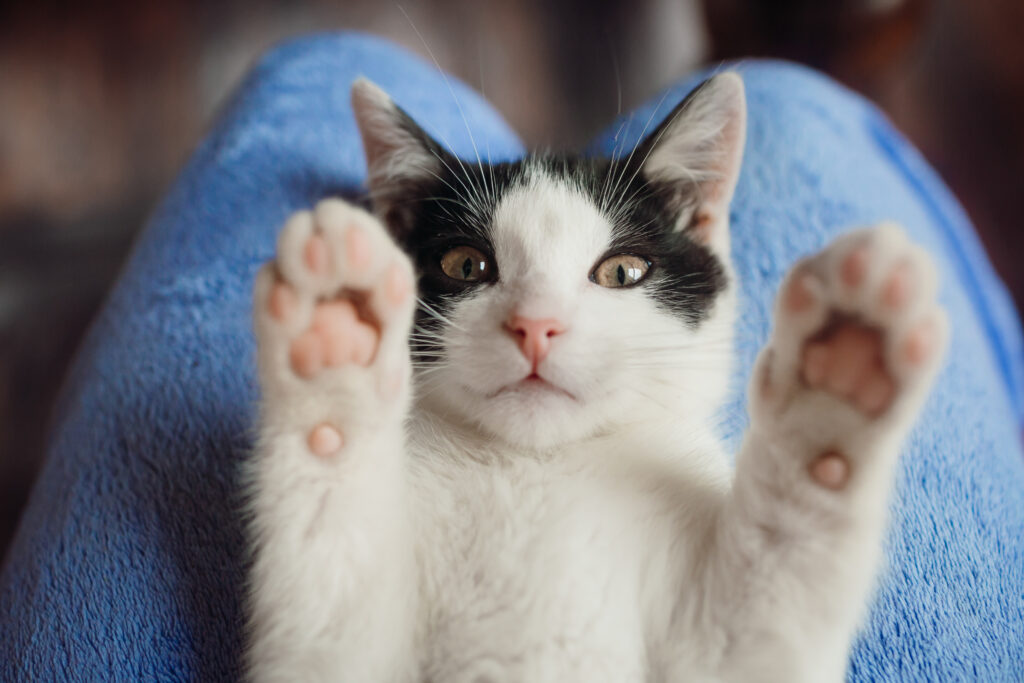It’s pretty common to come across a cat with a little belly, right? But when that belly gets big and swollen, it could be a sign that something’s up with your kitty’s health.
So, if your cat’s belly isn’t just extra fat, it might be facing some health issues. And it’s important to know what’s going on when your little furball gets that big, fluffy belly. Let’s get into it!
How to tell if your cat has a swollen belly?
Mixing up a cat with a swollen belly due to health problems with a chubby cat is more common than you’d think. That’s why it’s good to understand the difference between the types of swelling a cat can have.
Cats usually store fat in their bellies, making it big and soft, like a “fanny pack” that swings when they move. Even skinny kittens can have that belly—it’s just part of their nature. But if the belly is rounder and harder, then it’s time to pay attention—it could be a sign of illness.
You can feel with your hands if your cat’s belly is swollen. If it’s round, enlarged, and even hard, it’s a sign that something’s not right. Depending on what’s causing it, your kitty might even feel pain when you touch that area.
The most common reasons?
Noticing that your cat’s belly is swollen isn’t that hard. If we know our pet’s body well, we’ll soon realize that something’s off. Belly enlargement isn’t a disease itself, but it indicates that something’s not okay. Check out the most common reasons:
Worms: These little guys can cause a swollen belly in cats. There are two main types that cause this swelling: roundworms and tapeworms. They hang out in the cat’s intestines and start reproducing.
It’s even more common to find swollen and hard bellies in kittens because of worms, since they have a weak immune system and are always close to their mom and other cats. Besides the belly, cats with worms might have diarrhea, vomiting, lethargy, hair loss, weakness, and weight loss. But don’t worry, treatment isn’t complicated, and you can easily prevent this disease with proper deworming.
Feline infectious peritonitis (FIP): This is a pretty serious viral disease that affects cats’ bellies. It causes an infection inside the belly, called the peritoneum. It’s caused by a very aggressive virus, especially in young cats.
Transmission occurs through contact with saliva, urine, or feces of an infected cat. If a cat has this disease, besides the swollen and painful belly, it might have fever, diarrhea, vomiting, and lethargy.
Cushing’s Syndrome: This syndrome messes up a cat’s hormones, usually caused by tumors in the pituitary and adrenal glands. Then the cat gets a swollen and hard belly, but it might also have belly pain, difficulty breathing, and changes in appetite. Treatment depends on the case, involving chemotherapy, surgery, or continuous medication.
Ascites: This fancy name is nothing more than the accumulation of fluid in the cat’s belly. It’s not a disease itself, but a sign that something’s really wrong with the cat’s health. It can be caused by malnutrition, worms, liver problems, heart problems, or other infectious diseases. If the belly is very full and swollen, the cat might even have trouble breathing, so it’s time to rush to the vet!
Count on All 4 Pets Emergency Hospital
We are a 24-hour emergency hospital, operating 365 days a year, providing reference service with highly qualified professionals in their areas.
We have a diagnostic center with computed tomography, X-ray, ultrasound, echocardiogram, electrocardiogram, hematology and urinalysis and we have large and comfortable ICUs and two operating rooms.
Our offices are designed and developed for the comfort of our clients. In addition to a generous wooded outdoor area, designed for dogs to relax with their owners during the visit. Our entire environment is prepared and equipped with what your pets need, when they need it. We seek to offer great comfort and hospitality in our services.







